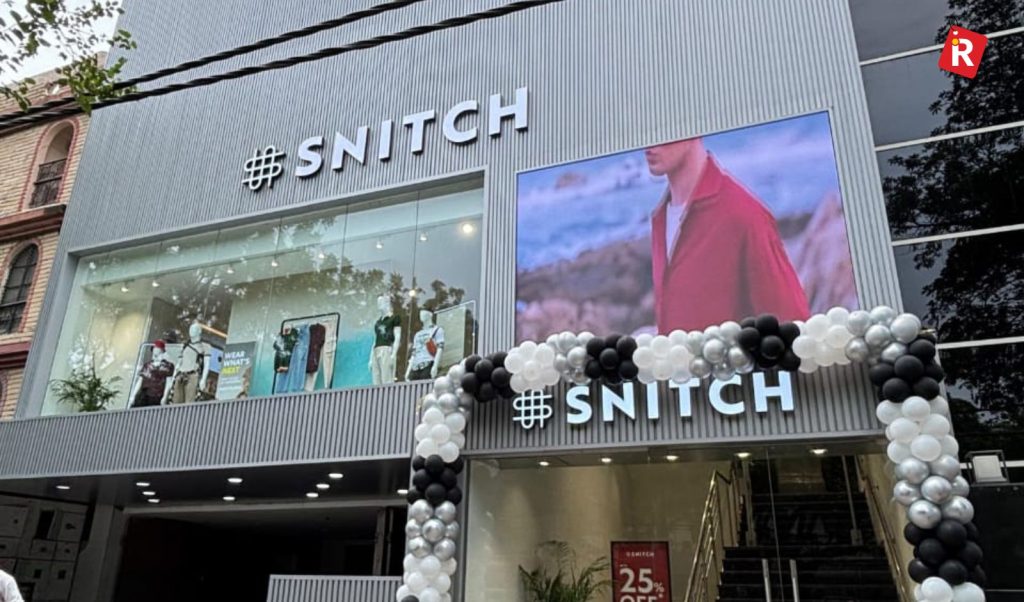Bengaluru’s streets have seen it all — food, groceries, even diapers arriving in ten minutes.
But now, clothes? In under 60 minutes?
That’s right. D2C menswear brand Snitch has jumped headfirst into the quick commerce game — promising to deliver your next outfit before your chai gets cold.
The idea sounds slick:
Turn retail stores into mini fulfillment hubs, curate fashion by city (Mumbai cool, Bengaluru casual, Delhi bold), and blend offline and online power.
In theory, it’s genius.
In reality, it’s a ticking time bomb for the planet — and for fashion itself.
⚡ The Rise of “Fastest” Fashion
Snitch’s 60-minute delivery means one thing: fast fashion just got a caffeine overdose.
They’re not the first to chase speed — Blinkit, Zepto, and Instamart have already made consumers expect everything now.
You want mangoes, dog food, or detergent? Done in 10.
Now add “date night shirt” or “Diwali kurta” to that list.
But here’s the problem — fashion isn’t biryani.
You can’t microwave sustainability.
When you make style as disposable as a samosa, people stop thinking before buying.
🧥 What Could Go Wrong? Pretty Much Everything.
1. Impulse Shopping on Steroids
Imagine scrolling, clicking, and having a shirt in your hand within 60 minutes.
Sounds convenient, right?
But convenience kills conscience.
Quick delivery removes the pause that makes people ask —
“Do I really need this?”
Impulse buying will skyrocket, and so will the mountains of unused clothes ending up in Indian landfills.
2. More Fast Fashion, More Fake Sustainability
Fast commerce and sustainable fashion are enemies by design.
Snitch might claim efficiency or local sourcing, but when fashion cycles shrink from seasonal to hourly, it’s not progress — it’s pollution.
More production, more packaging, more returns, more waste.
Every new “quick order” becomes another blow to ethical manufacturing and environmental health.
3. Fulfilment Hubs = Hidden Carbon Footprints
Turning every store into a “micro-warehouse” may sound innovative, but it’s energy-intensive.
Constant packaging, local couriering, air-conditioned micro hubs, and returns logistics all burn through carbon credits like a diesel truck in rush hour.
If the goal is “city-first” fashion, the cost is “planet-last” responsibility.
4. Workers Under Pressure
When delivery time becomes the hero metric, workers become the villains if they’re even a minute late.
We’ve already seen how Blinkit and Zepto riders are treated like machines on two wheels.
Now, imagine the same pressure creeping into fashion delivery — pickers, packers, and drivers scrambling through traffic just so someone can wear a new T-shirt in an hour.
This is “wear now, exploit later” capitalism at its worst.
5. Returns: The Silent Killer
Quick commerce thrives on instant gratification, but it also breeds instant regret.
Fast orders mean fast returns — and most returned clothes aren’t resold.
They’re burned or dumped.
With each “try-on and return,” we add a layer to the landfill and a scar to the environment.
💣 The Psychological Fallout
Quick commerce rewires consumer behavior.
It makes patience extinct.
When every desire is instantly fulfilled, we stop valuing what we have.
The joy of waiting for a handcrafted product, made by human hands — gone.
Instead, we get machine-made clothes delivered faster than we can spell “handloom.”
That’s not innovation. That’s addiction.
🌍 The Real Cost of Quick Fashion
Each quick delivery adds emissions.
Each return burns fuel.
Each impulse buy deepens the hole our planet can’t crawl out of.
And let’s not forget — every fast fashion brand feeding this system is part of the same silent ecosystem that kills local craftsmanship, destroys slow fashion, and normalizes overconsumption.
The irony?
While sustainability advocates fight for Digital Product Passports, ethical sourcing, and circular fashion…
brands like Snitch are racing to make clothes arrive faster than awareness itself.
🧠 The Future of Fashion Should Be Slow — Not Lazy
Speed should never replace soul.
Fashion that takes time — to weave, to dye, to design — also gives meaning to what we wear.
We don’t need a shirt in 60 minutes.
We need a planet that lasts 60 more years.
💬 Final Thought
Snitch’s 60-minute delivery may impress investors and Gen Z shoppers, but if it catches on, it could mark the beginning of Quick Fashion 2.0 — the era where style moves faster than sense.
And in that race, the only thing we’ll deliver quickly…
is our planet’s downfall. 🌎

